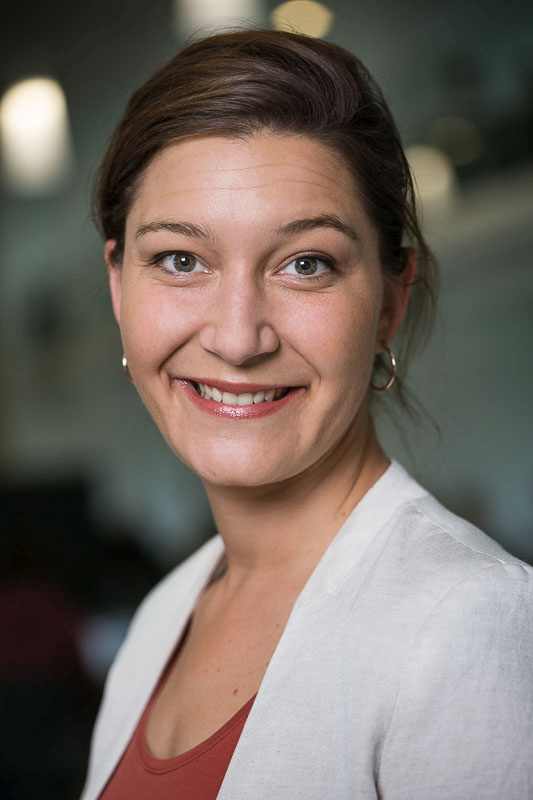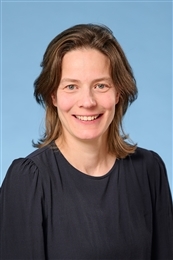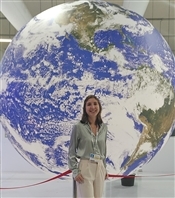
Sustainability and Organizational Change
Sustainability and Organizational Change is a course that enables participants to stimulate and realize change for sustainability within their organization. Combining academic research on sustainability, innovation and change management, participants learn about the latest trends affecting organizations, to recognize potential to contribute to change their organization toward sustainability, and how to overcome the challenges that can arise when implementing change.
Also available as an incompany training
This course is also available as an incompany training. To know more about the possibilities in your organization, please contact Christina Bidmon (c.m.bidmon@uu.nl).
What makes Sustainability and Organizational Change unique?
The Copernicus Institute for Sustainable Development is an interdisciplinary institute offering a unique combination between the natural sciences and social sciences. In this course, this is reflected by offering a unique combination between latest research on sustainability to enable climate literacy, yet also insights into the practical toolkit and change management practices required to effect change in their organization. We hardly use frontal teaching but rely on experiential learning methods, including negotiation games and simulations, conversations with experts, case studies and teamwork. Participants will have ample room to bring in their own experiences and tailor contents to their own learning needs. A specific focus lies on allowing participants to bring in their own cases, and to equip them with the diagnostic tools to define a change management approach that fits their organization.
About Sustainability and Organizational Change
Sustainability has evolved into a strategic priority for many organizations. The issues range widely, from commercializing eco-friendly products, managing ESG reporting more proactively, to the true integration of sustainability into the corporate strategy. While educating and communicating about sustainability remains important, the implementation of actual changes and organizational transformation become more relevant. Yet, trying to put the ambition to change into action can be difficult. How to convince boardrooms and colleagues of sustainable priorities in the light of trade-offs and set decision-making processes? How to promote organizational change for sustainability in light of multiplex stakeholder interests and ensure effective collaboration for sustainability?
Target Group
This course is targeted at professionals with min. 3-5 years work experience. Participants should have an interest in helping their organization to become more sustainable, for instance assuming a role as internal change agent for sustainability. Experiences with project or team leadership relating to sustainability initiatives are desirable but it is not a prerequisite that the participant currently works in a function related to sustainability.
Learning goals
After the course, the participants should be able to:
- explain the key drivers and imperative of business sustainability
- analyze the (future) impact of sustainability on their organization
- differentiate and describe different paradigms of change management
- identify and describe the internal and external challenges of implementing and upscaling sustainable innovation and change initiatives for sustainability
- identify and describe the trade-offs that occur when implementing change
- develop a change management approach tailored to their organization
- differentiate and select appropriate techniques and mechanisms that promote change for sustainability
The course is structured in 2x2 full days on site. Before the course start, participants will be asked to complete a preparation kit.
Day 1 & 2: Sustainability Challenge & Impact on Organization
The first module equips participants with foundational knowledge on sustainability challenges and organizations. We take a holistic perspective on the role of organizations and their business models in society.
Participants will
- develop the skills to analyze the impact of sustainability on their organization
- evaluate the future fitness of their organization
- be introduced to different types of change for sustainability as identifying opportunities for realizing these.
A dinner is organized on the first course day.
Day 3 & 4: Implementing Change
The second module focuses on techniques for implementing and promoting change for sustainability.
Participants will
- focus on the design of change initiatives
- how to lead change and practice stakeholder engagement, as well as the question how to become an intrapreneur for scaling up change initiatives and anchoring them in given governance structures.
A practice session/excursion is organized on the last day, followed by the graduation ceremony and a joint borrel.
This course has a minimum of 8 participants, and a maximum of 20 students. Placement is in order of registration.
Course Coordinator:
Dr. Christina Bidmon

Focus areas: Innovation, Strategy, Entrepreneurship
- View profile
Teacher
Dr. Maryse Chappin

My research mainly focuses on gaining a better understanding of (the process of) sustainable innovation. I focus on collaboration and networks as well as on the impact of the institutional environment on (sustainable) innovation. I study this in different sectors and industries (e.g. paper and board industry, smart grid sector, building and agriculture) and contexts when looking at (social) innovation in developing countries.
Teacher:
Sophie Klein

Sophie Klein is a PhD Candidate in Sustainable Business and Finance with a diverse background spanning research institutes, the corporate sector, and international organizations.
Christina Bidmon about the course:

Contact
Continuing Education of Geosciences
Mail your questions to continuingeducation.geo@uu.nl
- continuingeducation.geo@uu.nl
